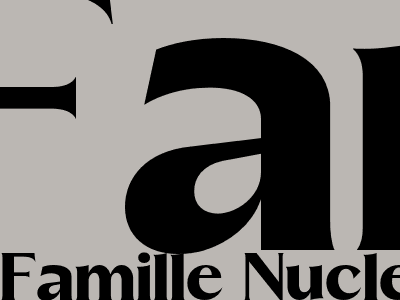The Ultimate Guide to Famille Nucleaire: A Comprehensive Overview
What is Famille Nucleaire?
Famille Nucleaire, or nuclear family, is a family unit typically consisting of two parents and their biological or adopted children. This traditional family structure has been the dominant model in Western societies for centuries. It is characterized by a strong bond between the parents and children, with the parents providing care, support, and guidance while the children provide emotional and practical support to their parents.
Historical Evolution of Famille Nucleaire
Origins and Prevalence
The concept of Famille Nucleaire emerged during the Industrial Revolution. With the shift from rural to urban life, extended families became less common as people moved away from their traditional communities. The nuclear family provided a stable and supportive environment for individuals in a rapidly changing society.
In the 20th century, Famille Nucleaire became the dominant family model in Western societies. Factors such as urbanization, economic growth, and advances in healthcare contributed to its widespread adoption.
Challenges and Changes
In recent decades, the Famille Nucleaire has faced challenges and undergone some changes. Factors such as rising divorce rates, increasing numbers of single parents, and the growing acceptance of diverse family structures have led to a shift in the traditional nuclear family model.
Functions and Benefits of Famille Nucleaire
Nurturing and Support
Famille Nucleaire provides a nurturing environment for children. Parents play a crucial role in shaping their children's physical, emotional, and intellectual development. Children benefit from the love, care, and guidance provided by their parents.
Division of Labor
In a traditional Famille Nucleaire, parents often have distinct roles. The father typically assumes the role of the breadwinner, while the mother takes on domestic responsibilities such as childcare and household management.
Emotional Bond
The nuclear family fosters strong emotional bonds between its members. Parents and children develop a deep connection based on shared experiences, mutual support, and unconditional love.
Challenges Facing Famille Nucleaire
Changing Family Structures
The increasing acceptance of diverse family structures, such as single-parent families, blended families, and same-sex couples, has challenged the traditional definition of Famille Nucleaire.
Economic Pressures
The rising cost of living has put pressure on many nuclear families. Both parents may need to work to make ends meet, which can impact the time they have available for their children.
Adapting to Changing Times
Despite the challenges, Famille Nucleaire remains an important social unit. It has evolved to meet the changing needs of society, but its core values of love, support, and nurturing continue to be essential for the well-being of families and individuals.

Komentar